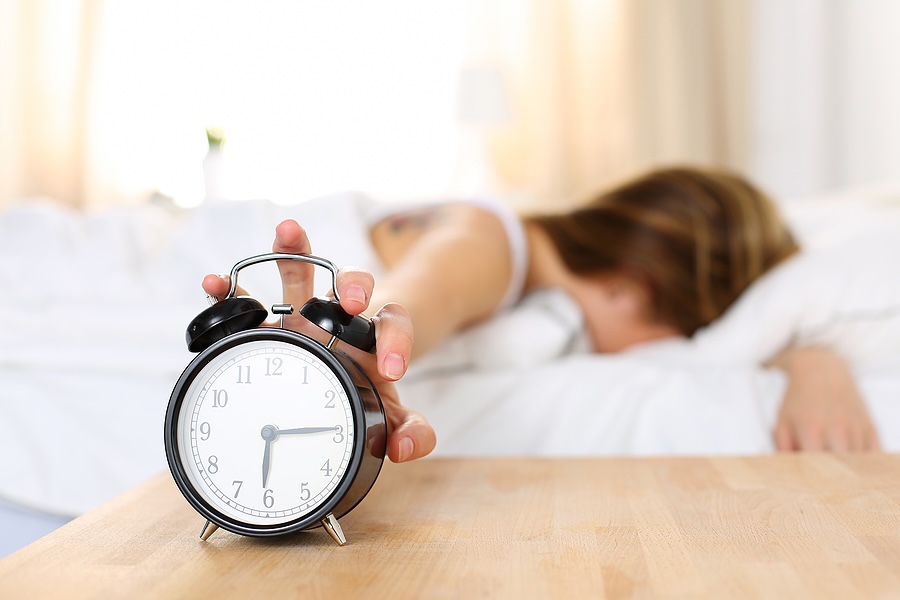Updated: June 1, 2025
- When you eat can impact weight gain or loss
- Using your natural circadian rhythm to time your meals can help you maintain a healthy weight
- Eating according to your natural cycle can regulate hormones, helping to heal adrenal dysfunction.
- Timing meals around your circadian rhythms isn’t a free for all; healthy choices still matter.
- Shift your lifestyle to match your natural rhythm with a few simple tips.
When I spoke with Lily recently, she said, “I heard someone talking about the “circadian rhythm diet.” What is that? Is it a new fad diet? Does it work? What are the rules?” Like so many of the women I see, she’d been struggling with unwanted weight gain, and had overheard the term and been intrigued.
Before answering, I asked about other symptoms, and wasn’t surprised to hear that she was also feeling exhausted all the time, and wasn’t sleeping well at night. I told her I suspected that adrenal dysfunction was at the root of her symptoms – including the weight gain – and that paying attention to her circadian rhythms could help.
I also told her that, though some people call it a “diet”, eating according to your circadian rhythms is really a lifestyle choice. There are no “rule” or rigid meal plans, no foods that are strictly off limits, no calorie counting or measuring portions. Even without the rules, it can make a big difference when you tune in to your eating schedule and align it to your body’s natural cycles. The great news is that not only can this help with weight, it can also make a big difference in balancing the adrenals.
Weight gain and adrenal function are intricately linked; each impacts the others. Metabolic function has been linked to circadian rhythms, and adrenal function has an impact on metabolism. It’s a complicated web of connections, but it all boils down to this: paying attention to when (and how) you’re eating can help support your adrenals, allowing for weight loss while boosting overall health at the same time.
What Are Circadian Rhythms and Why Do They Matter?
Circadian rhythms are 24 hour cycles connected to your body’s internal clock that impact critical functions and processes in your body. You’ve probably heard the term connected to the sleep/wake cycle, but there are many other systems that follow circadian rhythms, including the digestive and endocrine systems.
Circadian rhythms help optimize your body’s processes throughout a 24-hour period. These rhythms work in conjunction with a “master clock” in the brain which is impacted by environmental cues, most notably light.
Our ancestors naturally ate following their circadian rhythms and slept when the daylight faded. But with technological advances that enable us to stay awake and active 24/7 there’s been a shift in both sleeping and eating patterns. And these shifts could be contributing to many modern health problems, including obesity, diabetes, high blood pressure and metabolic syndrome, among others.
In our modern society, it’s more typical to eat a large meal at the end of the day when the family gathers after work and school. Particularly in American culture, we often keep ourselves so busy we “forget” to eat all day, and when we finally stop moving we find ourselves ravenous.
The problem is that our bodies work best when they’re synchronized with that internal clock. And food is another big cue to alert our bodies to the time of day. If our patterns are upside down, it’s easy for that clock to be off.
Circadian rhythms and hormones
When our behaviors are out of sync with our natural rhythms, our hormones (which carry vital messages throughout our body) can easily become imbalanced.
Normally, cortisol levels are at their highest in the morning, around 8 am, giving us the energy we need to rise. Throughout the day, cortisol levels drop, reaching their lowest point around 3 am.
When this cycle is disrupted, other hormones – including those that regulate metabolism and appetite – are thrown out of balance. This creates stress in your body, which increases the amount of cortisol produced. And high cortisol levels at the wrong time of day contribute to further imbalances. The cycle goes on and on – and it’s not the cycle we want! If it goes on too long, adrenal fatigue can result and you may find yourself holding on to weight and barely able to function.
When you shift your eating patterns to match the natural circadian rhythms, you can also level out hormones and support your adrenal glands.
Isn’t that just intermittent fasting?
Absolutely. Eating according to circadian rhythms is a form of intermittent fasting, and research has shown that intermittent fasting can make a real difference to health for some people. But there are many forms of intermittent fasting; eating in line with your circadian rhythm is a little more specific. It’s all about paying more attention to natural light patterns and eating accordingly.
Of course, daylight hours change depending on the season and where you live. It may not be realistic to eat before the sun goes down in areas where that happens at 4:30 pm, before you’re even done working for the day. But although your last meal might be after dark, if it’s the lightest meal of the day your body won’t have to work as hard to process it.
So if I time it right, I can eat whatever I want?
Absolutely not. Making healthy choices is critical to both adrenal balance and regulating weight. I am a firm believer that food is the best medicine we have available to keep our bodies healthy and strong. I’ve been talking and writing about this for decades, and I won’t ever change my mind. Healthy food has real power – and so do we, when we make healthy choices!
I firmly believe that we all need a healthy balance of fat, carbohydrates, fiber and protein to keep us feeling our best. That’s why I don’t recommend diets that cut out certain food groups for extensive periods of time. When our bodies aren’t getting all of the nutrients they need, major health problems develop – like adrenal fatigue.
Altering the timing of your meals is just one piece of the healthy eating puzzle. It’s also important to choose organic, whole foods whenever possible, avoid anything heavily processed, reduce or eliminate sugar consumption, and be attentive to any possible sensitivities you have (such as gluten or dairy) that could be causing symptoms of adrenal fatigue, including weight gain.
Avoiding both caffeine and alcohol is also important to adrenal health – particularly if your adrenal glands are already strained. Both can disrupt sleeping patterns, which can keep cortisol levels imbalanced.
Making healthy choices on what you consume in conjunction with considering the timing of your meals is your best bet in keeping your body thriving long term.
Helpful tips for changing eating patterns
As with any major change in eating patterns or habits, you should consult with a trusted healthcare professional before trying anything drastic. The following tips can ease you into healthier patterns to help you get started.
- Don’t eat too close to bedtime, even if it’s still light out. Your body works hard when it sleeps, but research suggests that it stores food as fat rather than burning it for energy as the evening wears on. It’s best to stop eating three hours before bedtime.
- Eat your heaviest meal in the middle of the day. Although modern lifestyles often mean lunch is grabbed “on-the-go” or skipped entirely, your body is best prepared to process a large meal mid-day. Shift towards eating bigger meals earlier in the day by reducing dinner portion sizes a little at a time so you wake up hungrier.
- Reduce your reliance on artificial light. Begin shifting your bedtime and the time you wake up to better match the natural light. Create a routine that reduces the use of electronics and artificial lights in the evening.
- Consistency is key. If you’re constantly shifting the times you go to sleep and rise, your body won’t be able to easily maintain its natural cycles. Although it’s tempting to stay up later on the weekends or while on vacation, you may feel more fatigued with a schedule that changes often.
- Plan ahead. If you bring what you want to eat with you to work, it’s easier to make healthy choices when energy wanes. An apple with nut butter is a much better option than a candy bar at 3 pm. This is especially important if you are working a night shift and aren’t able to eat during daylight hours. In this case, it’s best to eat your biggest meal before you head to work, bring a few healthy snacks to keep energy levels up as needed, and a light meal after work.
- Eat three meals per day to keep blood sugar levels stable. Meals should include a wide variety of vegetables, high-quality protein, healthy fat and some fiber.
- Eat within a couple of hours of waking up. Smoothies are a great option if you aren’t a “breakfast person.”
- Don’t skimp on sleep. To keep your adrenals healthy, you need at least 7-9 hours of quality sleep per night. Set a soothing routine to help yourself relax and get ready for bed. Meditation, stretching, gentle yoga poses, and soft music can all help you unwind. A white noise machine may help keep you asleep all night.
- Hydrate! Water is always an option, even when you are done eating for the day. Often, we can mistake hunger for thirst – so having a water bottle handy and taking a few sips before you head for the kitchen can really help!
- Remember — progress, not perfection! If you find yourself getting off track, don’t beat yourself up. Just remember that you can change course at any time — having one cookie before bed doesn’t mean you should give up and eat the whole package!
Lily listened carefully, then took the information I gave her and ran with it. A few weeks later, she was happy to report that she was finally sleeping well again, had more energy than she’d had in months, and had lost some of those stubborn pounds. Best of all, she said, was that once she got used to it, eating in sync with her natural clock was easy. It is, after all, the way nature intended us to eat!








